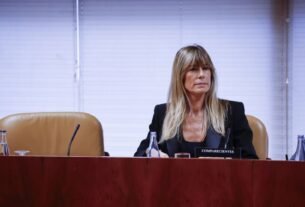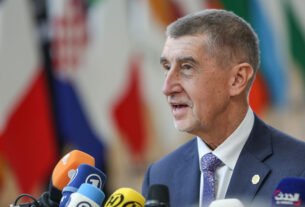The European Commission on Wednesday proposed doubling financial support to Greenland, for a total of more than €530 million under the next seven-year EU budget.
The EU is already the second-largest contributor to the Greenlandic public budget, transferring €49 million a year, after Denmark.
Of that, €32 million is channelled through the current long-term budget and €17 million through the EU’s fisheries agreement with the Arctic island, renewed last December.
Under the Commission’s plan, the annual €32 million envelope would rise to nearly €76 million from 2028, a 130% increase in real terms compared with current levels.
The funds will help strengthen cooperation on critical raw materials, energy, and digital integration in Greenland, said EU Justice chief Michael McGrath, upon unveiling the proposal.
Wednesday’s announcement is part of the final tranche of the Commission’s long-term budget overhaul, following the first package unveiled in July.
More broadly, the Commission is proposing to almost double its overall investment in 13 overseas countries and territories, including Greenland, from €500 million to €1 billion.
These countries and territories “are part of the European family,” McGrath said. And “in today’s era of systemic rivalry, [Greenland] anchors us in the Arctic.”
The Commission’s move comes at a time of heightened tensions between the Trump administration and the Kingdom of Denmark, of which Greenland is part.
Since taking office in January, Trump has not shied away from his ambition to acquire control of the Arctic island, a claim that Greenlandic and Danish officials have openly rejected.
Last week, Denmark summoned the top US diplomat in Copenhagen after media reports of covert influence campaigns involving at least three people connected to the Trump administration.
Aaja Chemnitz, a Greenlandic member of the Danish Parliament, told Euractiv she welcomed the increased investment. “With Trump’s threats, it is important that the EU engages with Greenland.”
Still, the sizeable money pot does give her some pause. “It is important that Greenland does not become a subsidy-dependent country, that money is invested in business development.”
The proposal to increase EU funds will hinge on the approval from EU countries and European Parliament, which will negotiate with the Commission over the next two years.
(mm)






